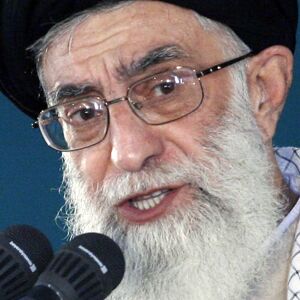
The Fallout From Iran’s Election
Are sanctions against Iran working? Will renewed efforts to resume inspections and negotiations deter Iran’s nuclear program?
A big no, and a bigger no—if recent election results are any measure.
Talk about Iran’s nuclear capacity has been tough lately. America and Europe have cranked up sanctions against the country, and Western leaders have expressed hope in signs that the pressure is having its effect.
But then came Iran’s March 2 parliamentary elections. The results certainly didn’t signal a people hoping to make peace—but one bunkering down for war. They consolidated the power of the hard-liners, and shifted Iran away from democracy toward full-out totalitarianism.
Put aside wishful thinking and look at these results squarely.
This was Iran’s first vote since the presidential ballot in 2009 that provoked accusations of fraud and massive protests that embarrassed the government. In the time since then, the regime has worked to unify its key institutions and lay the groundwork for cementing its power. And for this election, it left little to chance. A body of clerics and jurists vetted all candidates for their loyalty to the Islamic establishment before they were allowed to run. Leading reformist groups (those that didn’t eliminate themselves by voluntarily boycotting the election) were banned.
But there was more at work here than just a heavy thumb. The fact is, Iran is on the rise. The “Arab Spring” has substantially boosted the country’s clout within the region, and its influence is now heavy in Egypt, Libya, Iraq, Syria, Lebanon, Israel, Yemen, Pakistan, Afghanistan and elsewhere. Among many Iranians, national pride is swelling.
Another point of pride is the nation’s nuclear program. The regime’s defiance against Western pressure to stop is rallying Iranian support. Some analysts say it is, in fact, preparing them for battle.
Election results seem to bear that analysis out. Voter turnout was impressive: 64 percent—much higher than the 50 percent in the 2009 election—higher even than America’s last presidential election.
And whom did Iranian voters empower? “The staunchest anti-Western political camp in the country,” reported Today’s Zaman. Of the parliament’s 290 seats, loyalists of Ayatollah Khamenei took control of three fourths. Several are Revolutionary Guards members. “Iranians have chosen those who would respond in the harshest manner to intimidation by the West,” explained Hasan Kanbolat, director of the Center for Middle Eastern Strategic Studies in Ankara.
The reformists are simply no longer an institutional force within the parliament. Conservatives dominate, and though they differ on some points, their support for Ayatollah Khamenei is virtually unconditional. President Mahmoud Ahmadinejad, whose thinking has been perceived as increasingly diverging from the ayatollah, lost considerable leverage within the parliament this election; observers say he will serve out the remainder of his presidency as something of a lame duck.
Certainly the ayatollah’s hand has been strengthened. He has always been the ultimate authority, but Iran’s political system is actually quite a complicated mixture of democratic and theocratic elements that have constrained him. This election marked a big step toward eliminating those constraints. As Asia Times put it, it was a “critical milestone” helping the regime to “institutionalize the shift toward maximum regime unity.”
“More than three decades after its founding, the Islamic Republic appears to be eschewing the populist democratic model for the classic authoritarian system marked by minimal popular participation and a dominant state,” wrote Times analyst Mahan Abedin. “This significant shift will have profound consequences across a wide range of political and economic factors, in addition to adding greater rigor and robustness to the country’s foreign policy” (emphasis added throughout). As if Iran’s pushy foreign policy, which is tying the international community into knots, didn’t already have enough rigor and robustness.
“The net outcome of the latest elections is simple: Iran’s theocratic nature will become more pronounced,” wrote Osama Al Sharif in the Gulf News. “Khamenei can now turn Iran into a full-fledged theocracy with undisputed clerical powers vested in him.”
It is a remarkable development. For two decades, the Trumpet’s editor in chief has been forecasting that Iran would surge into a leadership role within the Middle East. He has said that it would be driven by its radical religion, and that its aggressive foreign policy would increasingly provoke other nations. He has maintained that outlook even as Western leaders have placed their faith in the strength of Iran’s not-insignificant reformists. He repeatedly drew attention to its terrorist activities. He predicted Iran’s infiltration into Iraq even before the U.S. toppled Saddam Hussein. He predicted its rising influence in Egypt years before President Mubarak was pried loose.
The reason for the consistency in his analysis was its basis in biblical prophecy, which he explains in his booklet The King of the South. The fact is that God, thousands of years ago, foretold the role Iran is vaunting itself into today, and God is bringing that prophecy to pass.
Now, just look: Iran is stronger than it has been for decades, even centuries. Though the founder of the Iranian Revolution, Ayatollah Khomeini, set the country on its present course, it has been Khamenei who has overseen the biggest surge in power. When he took over after Khomeini’s death in 1989, Iran was weak, depleted, beaten down from nearly a decade of warring with Saddam’s Iraq. Today, Iran is the most powerful nation in the region, and Khamenei is the most powerful man.
Sanctions against Iran, efforts to resume inspections and negotiations—these have done and will do nothing to stop this nation from fulfilling this important prophesied role.
What is that role? Just look at the prophecy: This increasingly authoritarian nation, now certain to assume a foreign policy of greater rigor and robustness, is about to spark a nuclear world war!
